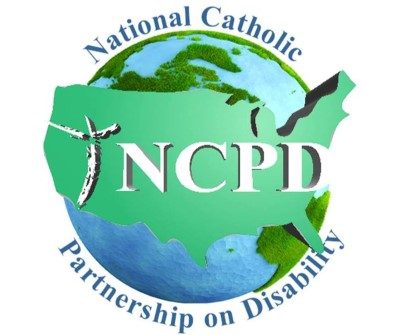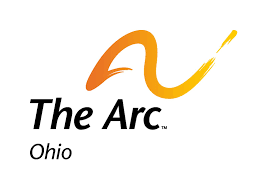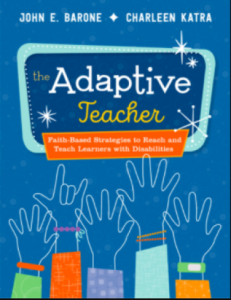Home > Offices > Office for Persons with Disabilities > Disabilities > Intellectual & Developmental Disabilities
Intellectual & developmental Disorders
Check out the video in The Catholic Telegraph, or its accompanying article on the left, on the moving stories of Bryce and Colin, two young men who received the Sacraments of First Holy Communion and Confirmation as young adults.
General Information
“It is important for parishes and families to not make assumptions about the capabilities of a person with a developmental or intellectual disability since the capabilities and limitations of each person with these conditions varies widely. NCPD has a Committee on Intellectual and Developmental Disabilities which works to provide resource to promote the meaningful participation of persons with disabilities in the Church. Browse the resources below to learn more about how to promote the meaningful participation of persons with developmental and intellectual disabilities in your parish.” -National Catholic Partnership on Disability
Church Documents
“Persons with disabilities are called to the fullness of sacramental life, even in the presence of severe disorders. The sacraments are gifts from God, and the liturgy even before being rationally understood, needs to be lived: therefore no one can refuse the sacraments to persons with disabilities. The community that is able to discover the beauty and joy of faith of which these brothers are capable becomes richer.” -Directory for Catechesis (New Edition)
If persons with disabilities are to become equal partners in the Christian community, injustices must be eliminated and ignorance and apathy replaced by increased sensitivity and warm acceptance. The leaders and the general membership of the Church must educate themselves to appreciate fully the contribution persons with disabilities can make to the Church’s spiritual life.
These guidelines were developed to address many of the concerns raised by persons with disabilities and their families and advocates, and also clergy and other pastoral ministers, for greater consistency in pastoral practice in the celebration of the sacraments throughout the country. With this objective in view, and with the desire to meet the spiritual, sacramental, and pastoral needs of persons with disabilities, the guidelines draw upon the Church’s ritual books, its canonical tradition, and its experience in ministering to or with persons with disabilities in order to dispel misunderstandings that may impede sound pastoral practice in the celebration of the sacraments. It is our hope that the guidelines will enhance diocesan policies already in existence.
A Perfect Gift (USCCB, 2015)
One parent shares a “secret” learned from the experience of having a child with Down syndrome – a secret that is fundamental to understanding ourselves and what it means to be human. This article gives an inside glimpse into the love-illuminated life of raising a child with special needs.
Organizations & Webpages
Below are organizations, along with their webpages, that serve as wonderful resources for parishes, families and individuals who would like to learn more about the topic of Autism Spectrum Disorder.
Mission: Rooted in Gospel values that affirm the dignity of every person, the National Catholic Partnership on Disability (NCPD) works collaboratively to ensure meaningful participation of people with disabilities in all aspects of the life of the Church and society.
This website is loaded with resources for families, individuals and parishes to better support faith development and meaningful participation within the Catholic Faith.
The Arc of Ohio is the voice of people with developmental disabilities, their families, friends of people with disabilities, and those who work for them. It is a grassroots organization which advocates for human rights, personal dignity and community participation of individuals with developmental disabilities through legislative and social action, information and education, local chapter supports, and family involvement.
The Adaptive Teacher: Faith-Based Strategies to Reach and Teach Learners with Disabilities will teach you how to maximize the effectiveness of your lessons with concrete strategies you can implement in your classroom tomorrow that will benefit all learners.
Written by John E. Barone and Charleen Katra, who bring over forty years of combined experience working with people with disabilities, this guide for teachers and catechists addresses crucial topics that will enrich the scope and reach of your teaching.
Accepting the Gift is focused on providing resources and support to Catholic special needs parents. When special needs families can show up and participate in Mass, religious education, sacramental prep, and parish activities, everyone benefits. Start with the assumption that your parish CAN make the accommodation, CAN provide the sacrament, and CAN include someone before saying “No”. Your efforts may be what keep a family from leaving the Church permanently.
As part of the University of Dayton the Institute for Pastoral Initiatives, serves as a support network and resource to individuals with disabilities and their families by providing DVD’s, and print resources, consultations, and networking opportunities on the national and local level.
Prayer
we are one Flock
God bless those who open doors:
With faith, with love, with knowledge,
Assuring all your people may worship here. . .
God bless those who welcome all your people
To the celebrations and obligations
Membership within your Church
God bless those who feel excluded.
Give them faith
Give them love
Give them the knowledge
Of your welcome
Open our hearts
To move swiftly
Within your grace;
To hear your message in silent words;
To glimpse your glory beyond our sight;
To find your wisdom in simple truths;
To Accept our Weakness in your strength.
Let us join Christ
in breaking down those walls
Which separate us, one from another.
Amen.
Provided by the National Catholic Partnership on Disability






